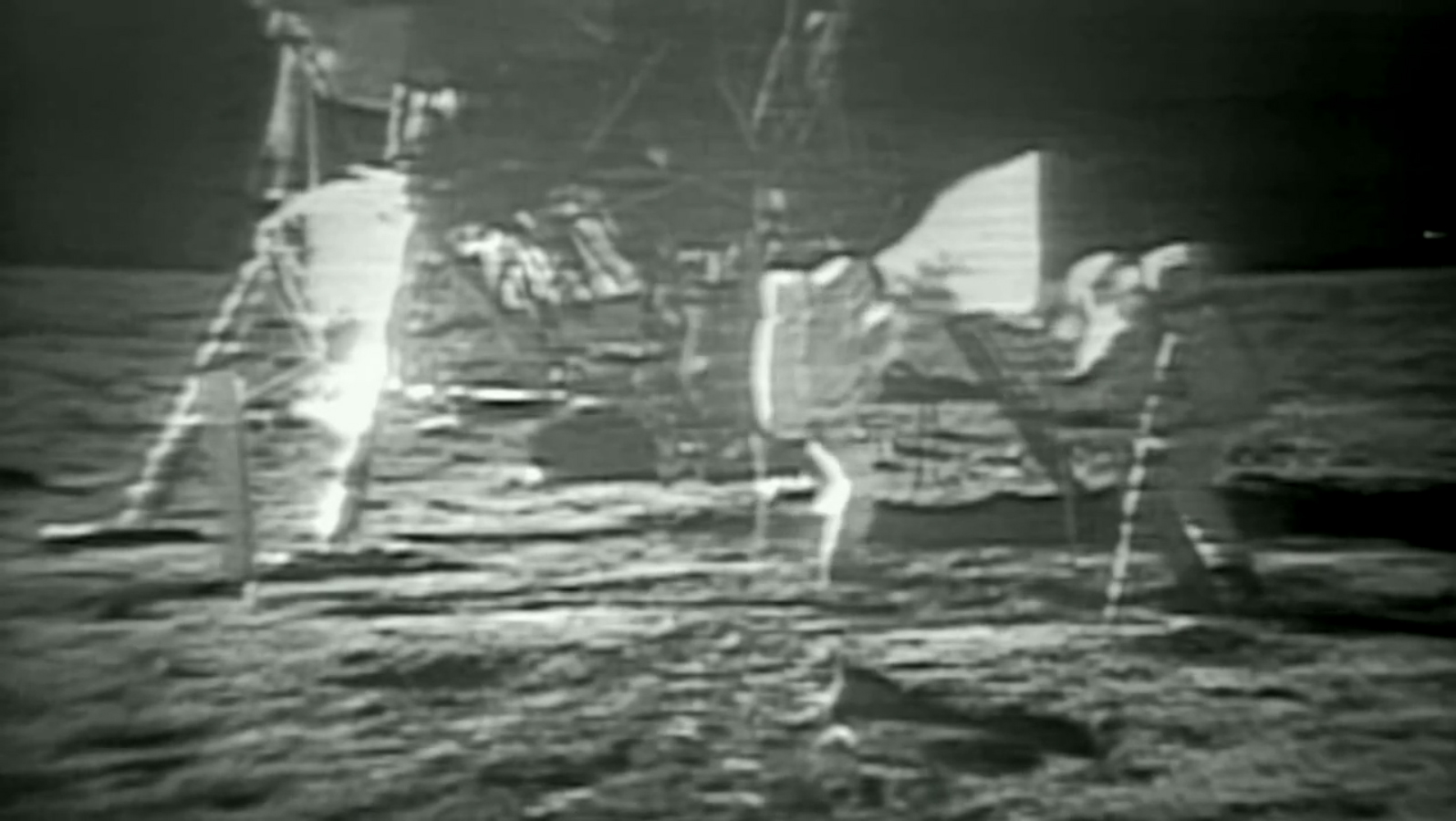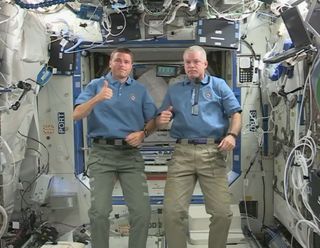Apollo 11 Moon Landing Raised the Bar for Humanity, Astronauts Say (Video)

It goes without saying that NASA's historic launch of the Apollo 11 moon landing mission 45 years ago today changed the face of humanity, and nowhere does that resonate more than in orbit, where astronauts live and work on the largest manmade structure off planet Earth: the International Space Station.
"When Apollo 11 landed on the moon 45 years ago, this space station that we live on was science fiction," station commander Steve Swanson of NASA said in a new video on the Apollo 11 anniversary. "But today it is a reality thanks to the legacy of the Apollo astronauts, and all of the nations who have followed the path to space since then."
On July 16, 1969, NASA astronauts Neil Armstrong, Buzz Aldrin and Michael Collins launched toward the moon atop a mighty Saturn V rocket. Four days later, on July 20, Armstrong and Aldrin landed their Eagle lander at Tranquility Base on the moon as Collins remained in orbit aboard the command module. [Apollo 11: A Moonshot Memory Pop Quiz]

"Today, we'd like to salute the Apollo 11 crew," said NASA astronaut Reid Wiseman, who joined Swanson in the video. "Forty-five years ago, Neil Armstrong, Buzz Aldrin and Michael Collins embarked on humanity's boldest journey. Apollo 11 not only achieved its mission to perform a manned lunar landing and return safely to Earth, it raised the bar of human potential."
In 1969, NASA and the United States were racing the Soviet Union to the moon. Since that epic Space Race, Russia and the United Space have become close partners in space. NASA and Russia's Roscosmos agency are two of the five space agencies overseeing the $100 billion International Space Station. (Space agencies from Europe, Canada and Japan round out that team.) In all, 15 different countries have worked to build the station since 1998, and more collaboration will be needed to make the next giant leap in space, Swanson and Wiseman said.
"Here on the International Space Station we are learning how to live and work in space for longer periods of time as we prepare for our next giant leap to explore an asteroid and visit Mars," Swanson added. "Like the station itself, those big missions will require the expertise and collaboration of many nations. We're privileged to be helping NASA move forward on that path."
Swanson commands an international crew of six astronauts aboard the space station. In addition to Swanson and Reid, the station crew includes Russian cosmonauts Oleg Artemyev, Alexander Skvortsov, Maxim Suraev and German astronaut Alexander Gerst.
Get the Space.com Newsletter
Breaking space news, the latest updates on rocket launches, skywatching events and more!
For a list of NASA events celebrating the Apollo 11 45th anniversary, read: NASA Celebrates 45th Anniversary of Apollo 11 Moon Landing
Email Tariq Malik at tmalik@space.com or follow him @tariqjmalik and Google+. Follow us @Spacedotcom, Facebook and Google+. Original article on Space.com.
Join our Space Forums to keep talking space on the latest missions, night sky and more! And if you have a news tip, correction or comment, let us know at: community@space.com.

Tariq is the Editor-in-Chief of Space.com and joined the team in 2001, first as an intern and staff writer, and later as an editor. He covers human spaceflight, exploration and space science, as well as skywatching and entertainment. He became Space.com's Managing Editor in 2009 and Editor-in-Chief in 2019. Before joining Space.com, Tariq was a staff reporter for The Los Angeles Times covering education and city beats in La Habra, Fullerton and Huntington Beach. In October 2022, Tariq received the Harry Kolcum Award for excellence in space reporting from the National Space Club Florida Committee. He is also an Eagle Scout (yes, he has the Space Exploration merit badge) and went to Space Camp four times as a kid and a fifth time as an adult. He has journalism degrees from the University of Southern California and New York University. You can find Tariq at Space.com and as the co-host to the This Week In Space podcast with space historian Rod Pyle on the TWiT network. To see his latest project, you can follow Tariq on Twitter @tariqjmalik.